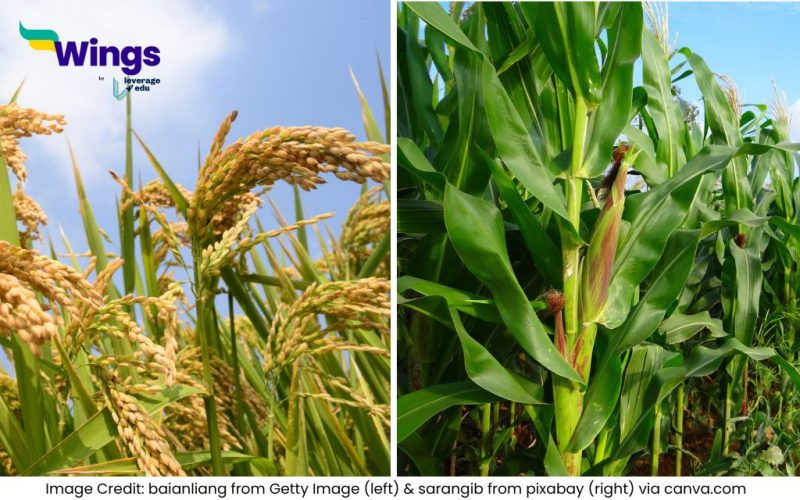India’s agriculture is heavily influenced by its climate, leading to two major cropping seasons—Rabi and Kharif crops. These terms are often introduced in schools, but understanding these terminologies with examples can make them easier to grasp. Let’s explore what these crops are, along with some examples of Rabi and Kharif crops, along with highlighting the difference between Rabi and Kharif crops for a deeper understanding.
What Are Rabi and Kharif Crops?
Rabi Crops:
Rabi crops are sown in winter (October to December) and harvested in spring (April to June). These crops require cool weather for growth and ripen during warmer months. Examples of Rabi crops include wheat, barley, mustard, peas, and gram.
Kharif Crops:
Kharif crops are grown during the monsoon season, with sowing taking place from June to July and harvesting from September to October. These crops thrive in warm and humid conditions. Examples of Kharif crops include rice, maize, cotton, sugarcane, and groundnut.
Difference Between Rabi and Kharif Crops
| Features | Rabi Crops | Kharif Crops |
| Sowing Season | Winter (October-December) | Monsoon (June-July) |
| Harvesting Season | Spring (April-June) | Autumn (September-October) |
| Weather Needed | Cool during growth, warm for harvest | Warm and humid |
| Examples | Wheat, Mustard, Peas, etc. | Rice, Maize, Cotton, etc. |
List of Examples of Rabi and Kharif Crops
Here is a list of 10 examples of Rabi and Kharif crops you can learn for more awareness of the types of crops:
10 Examples of Rabi Crops
Wheat, Barley, Mustard, Peas, Gram (Chickpea), Lentil (Masoor Dal), Oats, Cumin (Jeera), Linseed, and Coriander.
10 Examples of Kharif Crops
Rice, Maize, Cotton, Sugarcane, Groundnut, Bajra (Pearl Millet), Jowar (Sorghum), Soybean, Tur (Pigeon Pea), and Sesame (Til).
These crops highlight the seasonal diversity of India’s agriculture, with Rabi crops thriving in winter and Kharif crops flourishing during the monsoon.


 One app for all your study abroad needs
One app for all your study abroad needs











 60,000+ students trusted us with their dreams. Take the first step today!
60,000+ students trusted us with their dreams. Take the first step today!